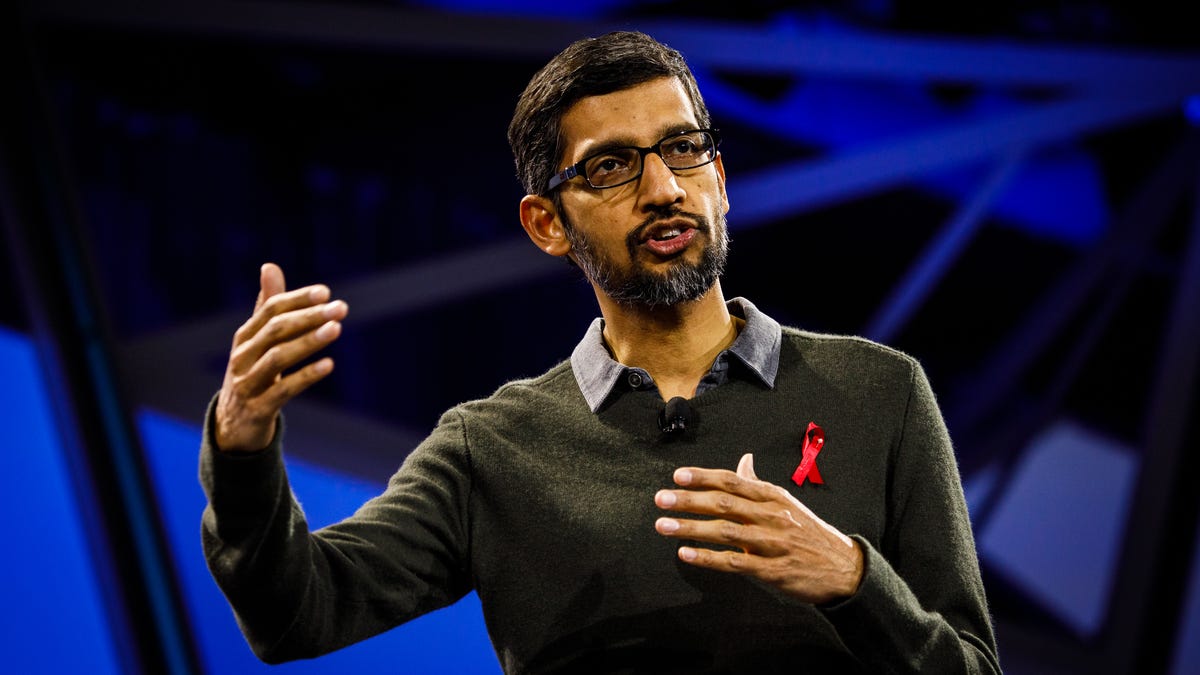Google rakes it in, even amid woes over Pixel 2 XL, fake news
The search giant is under intense scrutiny. But it’s still practically minting money.

Google and its parent company Alphabet have a lot on their plate right now.
Lawmakers in Washington are examining the world's largest search engine, along with its rivals Facebook and Twitter, over practices critics say undermined democracy. Google plans to testify at congressional hearings next week on how Russian agents used tech platforms to spread misinformation and interfere with the 2016 US presidential election.
Meanwhile, one of Google's new flagship phones, the Pixel 2 XL, has problems with its screen. Reports have mentioned washed-out colors, a bluish tint and a burn-in issue -- which means remnants of images remain on the screen, despite not being actively displayed. Google says it's investigating. CNET updated its review of the phone to reflect the concerns.
Those are big issues for Google, the largest and only profitable division of Alphabet, accounting for 99 percent of its sales. And yet, when it comes to the business side of things, life is still good.
In the third quarter, ended Sept. 30, Alphabet racked up $27.7 billion in sales, beating analyst estimates of $27.2 billion. Earnings per share were $9.57. Analysts expected profit would be $8.33 per share.
Alphabet's share price topped $1,000 in after-hours trading.
Still, during a conference call with analysts Thursday, Google CEO Sundar Pichai alluded to the problem of fake news on his company's platforms. "We care deeply about the quality of information we provide, and constantly work to get this right," he said. "As technology evolves, we have to evolve with it."
Fake news, real problems
Google, like the rest of Silicon Valley, is grappling with its outsize influence on the world and how people might misuse its products. Seven of its products have more than a billion users per month, including YouTube, Gmail, the Chrome web browser and its iconic search engine.
Pichai is conducting an internal investigation into how Russians might have interfered with last year's election using Google platforms, including the search engine, which is a key part of the world's largest advertising business, and YouTube, the world's largest video site. And after the mass shooting in Las Vegas, in which 59 people died and more than 500 were injured, Google's algorithms prominently displayed false information about the shooter in the search engine's "Top news" section.
Earlier this year, YouTube faced a high-profile boycott from advertisers after it was reported that ads were appearing next to extremist and hate content, due to YouTube's automated advertising technology. Major brands including AT&T and Johnson and Johnson ditched advertising on the platform. On Thursday, Alphabet CFO Ruth Porat said the company had worked to fix those problems.
"We've been doing a lot to protect the ecosystems and do the right things for advertisers and users," Porat said. "The overwhelming majority of advertisers never left. And those who did -- many are already back on the platform."
But while those controversies tend to grab headlines, Google is running a booming business. Part of the reason for the strong quarter -- Alphabet's revenue jumped 24 percent from the same period last year -- was an uptick in mobile advertising. "We have a very healthy mobile business, search business" Porat said, in what could be the understatement of the year.
The search giant also touted its growing cloud business, which provides computing power to other companies. On the call, Pichai announced new corporate customers, including Paypal.
Outside of its ads business, Alphabet's other high-profile projects are its moonshots -- audacious initiatives like self-driving cars and high-altitude balloons that beam Wi-Fi down to remote regions of the world. On Thursday, Alphabet said those projects, which it calls "Other Bets," are losing less money than they used to. They lost $812 million in the third quarter, versus $861 million over the same period last year.
First published Oct. 26, 1:09 p.m. PT
Update, 3:03 p.m.: Adds comments from conference call with analysts.
The Smartest Stuff: Innovators are thinking up new ways to make you, and the things around you, smarter.
Special Reports: CNET's in-depth features in one place.

